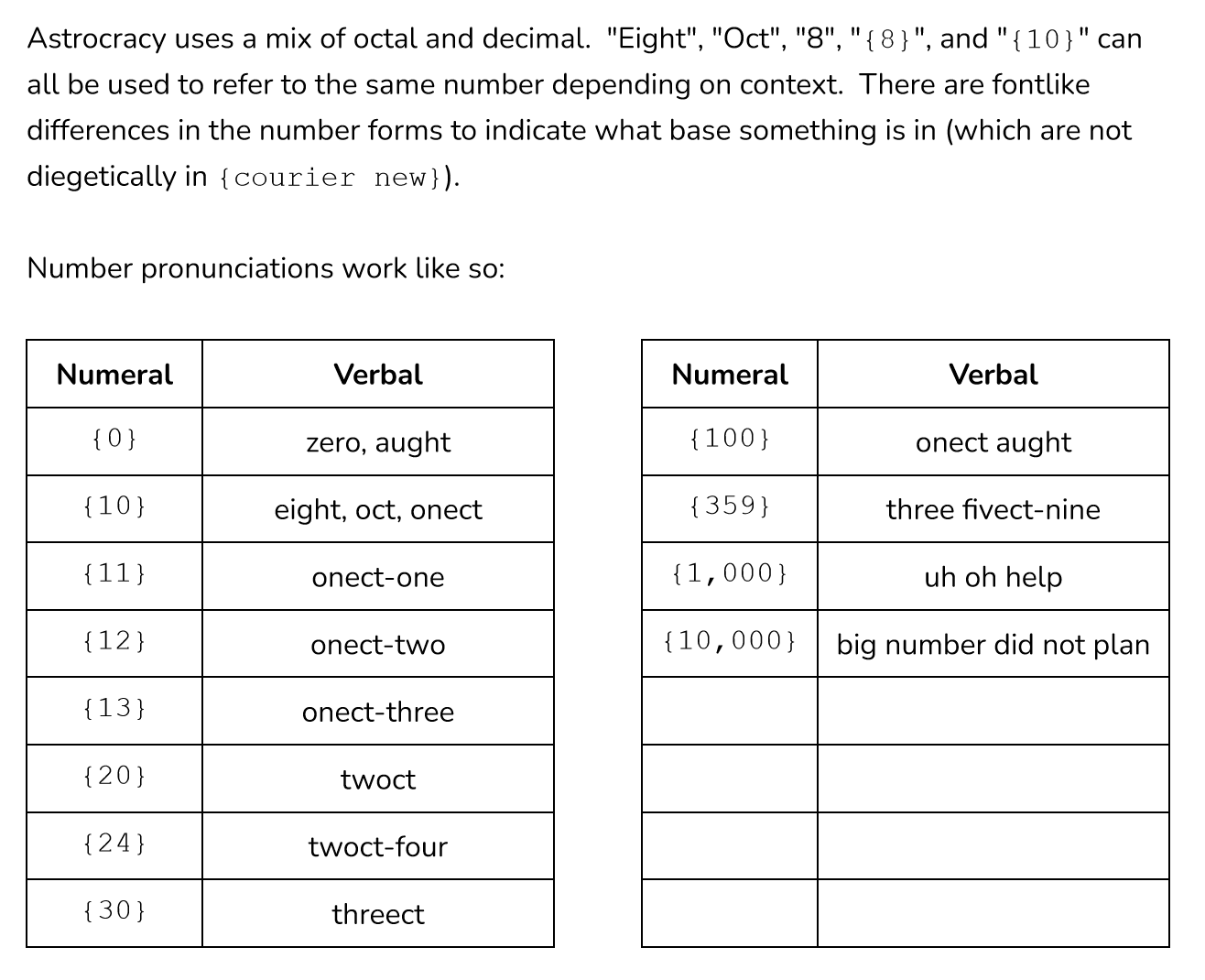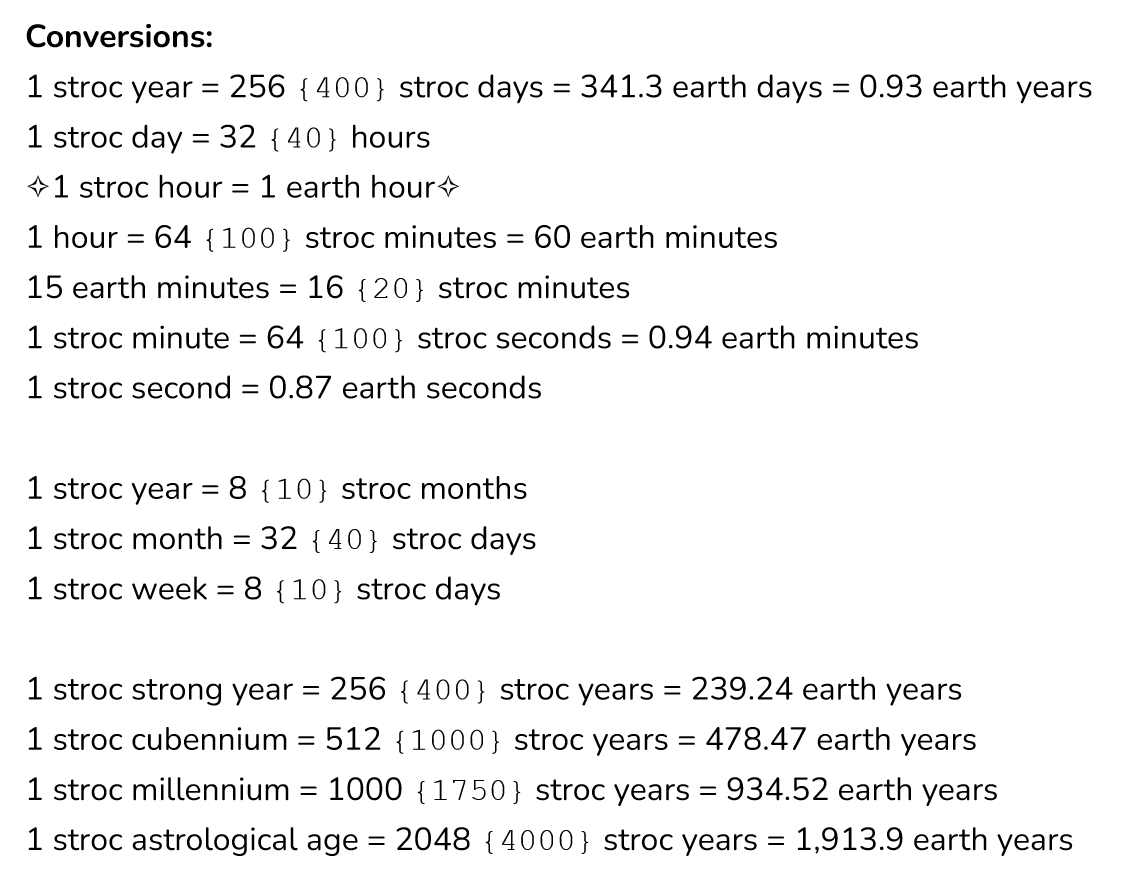Calendar, time system, and number system
Numbers
For time purposes, Astrocracy uses base 8:
- 256 (base ten) is 400 (pronounced forked-aught)
- 13 base ten is 15 base eight, pronounced wunked five
- 26 in base 8 is pronounced twoct-six
- the equivalent of 24-7 is fourct-oct
Time and Calendar
There are 32 hours in a day, 64 minutes in an hour, 64 seconds in a minute. Hours are the same length as Earth hours, and days are therefore a third again as long as earth days.
There are 8 days in a week and therefore 4 weeks in a month, for a total of 32 days a month (40 in base 8). The days of the week are Onesday, Twosday, Threesday, Foursday, Fivesday, Xesday, Vensday, and Octsday. Vensday and Octsday are the weekend.
The eight months of the year are:
- Unuary
- Druoary
- Triinary
- Tetrinary
- Quintamber
- Hexumber
- September
- October
The year therefore has 256 local days (equivalent to 341.33 Earth days). New Year's Day is Unuary 1, and is the fall equinox.
At least in the Roman Empire, years get numbered from the founding of Rome, with the current year being 785.
A strong year is as many years as there are days in a year - 256 years. A cubennium is 8^3 = 512 years. The word millennium does exist, and does mean 1000 years, but is not commonly used, except when the Roman Empire is trying to make it be a thing.
An astrological age is 2048 years long (eight strong years). The first age was the age of Gemini, the second age was the age of Cancer, and currently the age of Leo is ending. The ages have thematic arcs. The arc of the age of Gemini was about the beginning of sapient life, establishing how the species should go about existing, and founding the first civilizations. Cancer was about learning that humans are capable of affecting the universe in negative ways, taking steps to avoid those, and building a sustainable industrialized society. Leo seems to be about acknowledging the worth of mortal lives as more than just the larval stage of stars.



No Comments